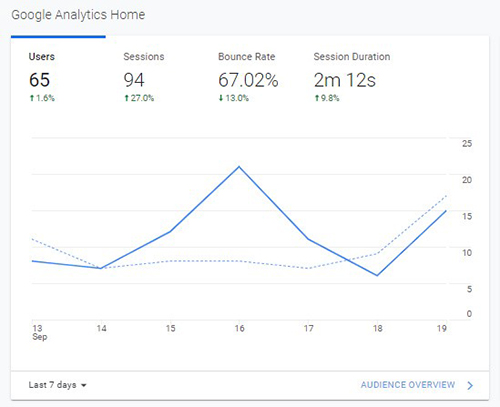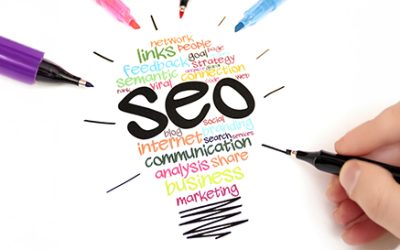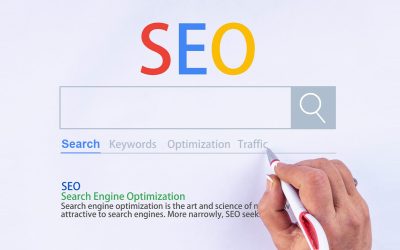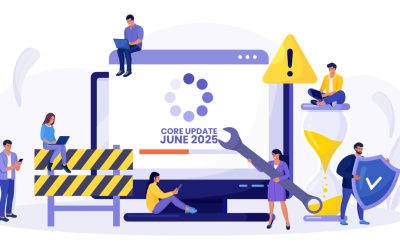A digital marketing services company assists businesses in developing a strong marketing plan. The KPIs (key performance indicators) will tell you whether or not your marketing efforts are successful if you have the correct digital marketing strategy. KPIs can take on a variety of forms based on your objectives and the channels you’re using (Google Ads, organic social media, paid social media, SEO, etc.) In particular for digital marketing, traffic and conversions are two of the most used KPIs.
Importance of Traffic and Conversion
In marketing, the term “traffic” specifically refers to “website traffic,” or the volume of visitors to your website over time. The success of your paid advertisements and SEO is mostly determined by the volume of traffic coming to your website. Traffic indicates that your advertising is being clicked on or that your website is ranked highly enough to attract natural clicks. When digital marketing and online commerce first gained popularity, just the quantity of visitors was used to gauge traffic. Now, however, we take into account many variables in addition to traffic volume to establish the traffic’s quality. For instance, traffic depends on how long people stay on your website. If a visitor to your website stays for 10 seconds before leaving, it’s likely that they accomplished little to nothing there, making their visit of no use to you.
A 30-minute visit, however, is far more beneficial. These visits are referred to as “sessions,” and you can assess the value of the traffic you’re receiving by looking at your bounce rate (how quickly visitors leave your page) and time spent on a page. These visits are referred to as “sessions,” and you can assess the value of the traffic you’re receiving by looking at your bounce rate (how quickly visitors leave your page) and time spent on a page.
The uniqueness of the visits is another aspect. Identify whether diverse people frequently visit your site, or just a certain number. Additionally, where your visitors are coming from might provide you with information: if the majority of your clicks come from sources other than your paid advertisements, you may want to reconsider your strategy or tweak your ad campaign. Finally, it’s important to consider what users do when they visit your website, and whether they convert.
The number of internet visitors who convert and take a specific action on your site is called a conversion. A conversion would occur if someone clicked on an advertisement asking them to register for an event and then did so. A conversion would occur if someone conducted a Google search for a product, clicked on your website, and made a purchase from you. Depending on your marketing strategy, you might want your visitors to download something, read a blog post, schedule an appointment, or, in most situations, make a purchase from you. You specify a conversion’s meaning for your business and plan.
Conversions are more valuable than just traffic since they increase return on investment. Even if you receive millions of visitors, if none of them make a purchase, your investment will not be repaid in full. For instance, if 1,000 people visit your website each month and 50 of those people buy something, your conversion rate is 5%. But let’s imagine your website has 5,000 visitors every month, which is great. However, suppose that your sales are still only 50. Your conversion rate is only 1%.
A poor conversion rate most usually indicates that something on your website isn’t performing as well as it should, even while your ads or organic ranking are doing an excellent job. You should be able to convert more of your visitors into paying customers now that you have five times as many potential clients as you had in the above scenario #1. Instead, you’re probably spending more on marketing while getting the same ROI. Focusing on converting traffic into sales will help you increase your return on investment.
The Need for Optimizing for Traffic
- With traffic, any conversion rate will increase: Increases in traffic will result in more revenue as long as your conversion rate is positive. For instance, if your website has 1,000 visitors and your conversion rate is 1%, you will eventually have 10 paying clients. You will have 100 paying clients if your conversion rate stays the same and you receive 10,000 more visits. In other words, you can live with a temporary stagnation in your conversion rate.
- Growing traffic takes time: Growing a website’s traffic requires a lot of work and time. It is also very expensive. You might not start to notice actual results for several weeks. In the light of this, a number of business owners desire to start generating visitors as soon as possible. They can start seeing the consequences of their scaling much sooner and are less hindered by delays as a result.
- Conversion optimization is simpler when there is more traffic: You will have more data to measure and evaluate if your website receives more traffic. When visitors arrive at your website, it is easier to research user behavior patterns and increase conversion rates.
- The priority is reputation:Although conversions and income creation are crucial, your reputation is definitely more vital if you care about the long-term success of your company. It’s not only about getting customers to buy from your company; traffic also involves increasing brand recognition and cultivating a positive image among non-clients. Building your audience before increasing your conversion rate may therefore be beneficial for promoting a stronger brand reputation.
The Need for Optimizing for Conversion
- Without conversions, traffic is useless: Increasing your traffic is advantageous if your conversion rate is favorable. However, no amount of traffic would help you if your conversion rate is close to nil. Prior to taking any other action, you should concentrate on improving your conversion rate if you’re having trouble getting any first conversions.
- Conversions can be easily and cheaply optimized: Optimizing a website for conversions is generally inexpensive and simple compared to boosting traffic streams. In just a few days after making a change, you can witness the results of your labor. Experiments can be carried out more quickly. Because of this, conversion optimization frequently appears to new business owners to be the superior first option.
- Less missed chances. You can be confident that your concept is working if you see traffic coming to your website. Every new user of your website is a potential customer who is intrigued enough by your company to make a purchase. You might, however, be tempted to view all of your new traffic as a stream of missed possibilities if you don’t spend any initial work on conversion optimization. Even though you may be receiving thousands of visitors, if none of them are converting, they can leave your site and never come back. You’ll miss fewer opportunities with early conversion rate optimization.
Here are some aspects to consider as you improve your optimization.
- Successful experimentation is essential: Try out several strategies to see what works best for your website; making mistakes won’t harm you. In actuality, this procedure will assist you in reaching your optimization objectives.
- Put your traffic value first: You can use this as an opportunity to test the conversion strategy for your website. However, it will be tough for you to test your conversion if there isn’t a lot of traffic.
- Keep your conversion value in mind: This will increase the value of your visitors, potentially resulting in high-quality leads, lower costs, and increased revenue.
Working with a reputable digital marketing services company will help you get the most out of your marketing investment. They will assist you in attracting and converting your consumers rather than simply attracting more traffic to your website in order to run more successful and profitable advertising campaigns.






